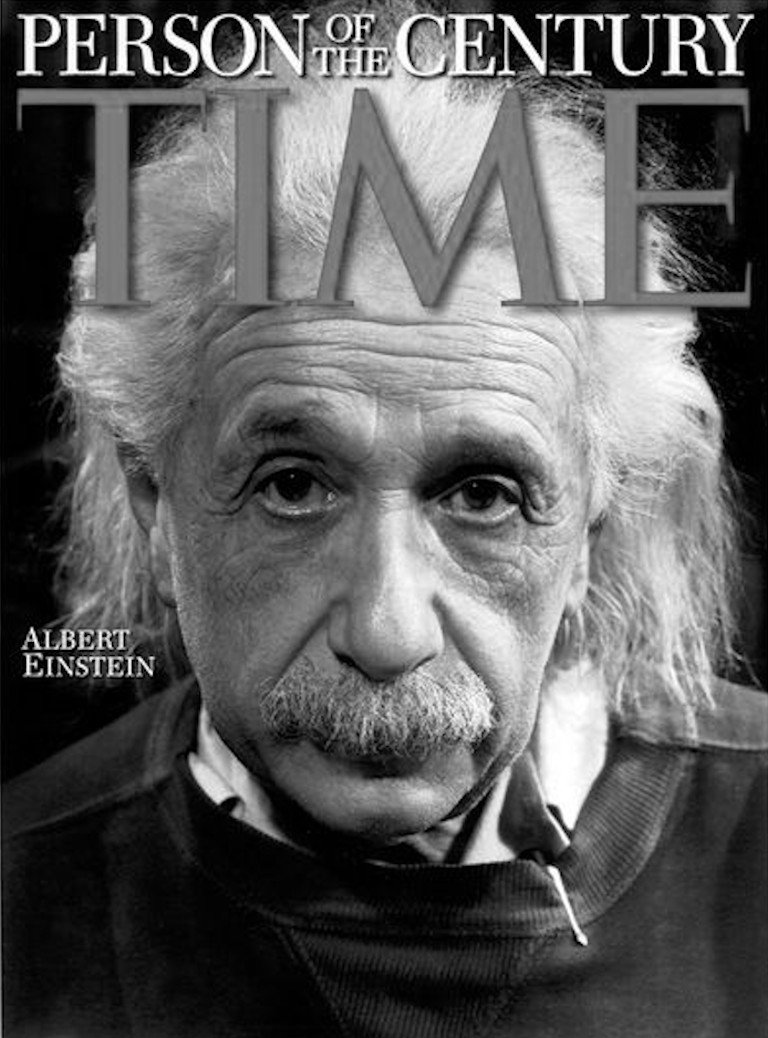Awards

The Nobel Prize
Einstein was awarded the 1921 Nobel Prize in Physics for his work on the photoelectric effect and for "Merits in theoretical physics". The mystery was why it had taken so long for the greatest physics of his generation received this greatest tribute in physics. Einstein was passed in 1920 because of the massive wave of publicity that followed the confirmation of his general theory of relativity. In 1921, the Nobel Committee chose not to award a prize that year. Only in 1922 did the committee see reason to award him the 1921 prize. Einstein's reaction was typical, he went to Japan and did not personally accept the award.
Relativity
Einstein had always expected to win the Nobel Prize someday.
He was so convinced that when negotiating the divorce with Mileva in 1918
he offered her the full amount of a future Nobel Prize.
The 1921 price was 121,572 Swedish kronor, or $32,250 - nowadays, approximately $400,000.
Whether he has ever kept this promise is historically doubted by historians.
Evidence found in 2006 shows that Einstein instead invested a large portion of
the money and then lost it in the economically noisy period of the Great Depression.
The 1921 Nobel Prize in Physics for the photoelectric effect and the possibly
deliberately vague formulation of "merits in theoretical physics" was the
only Nobel Prize to be awarded. Perhaps one of the greatest injustices
in science is that the Nobel Committee has never acknowledged its theory of relativity.
Together with quantum theory, it turned out to be one of the two major pillars
of 20th-century physics. Einstein has been nominated many times for his special
theory of relativity from 1905 between 1910 and 1922. However, he never won,
because his theory was so revolutionary that the committee claimed the supporting
evidence was too thin. Posthumous nominations are not allowed, so there will be
no Nobel Prize for Albert Einstein's greatest spiritual achievement.
Other prices
In addition to the Nobel Prize, the Copley Medal Einstein received a veritable
rain of other scientific awards. In 1925 he received the Copley Medal from the
London Royal Society. This prize is almost two hundred years older than the Nobel Prize.
Einstein was notified in 1920 that he would receive the Gold Medal from the Royal
Astronomical Society (RAS), until a group of rebellious members protested that
it would go to a German-Swiss Jew, at which point the party was canceled.
Later the RAS changed its mind and in 1926 Einstein received the Gold Medal.
In 1929, Einstein received the first Max Planck Medal from the Deutsche
Physikalische Gesellschaft for exceptional achievements in theoretical physics.
Planck, his friend and colleague for many years, presented him with the prize himself.
This medal was one of the many prizes and awards Einstein received after Eddington
confirmed the general theory of relativity and earned him no fewer than five honorary doctorates.
Einstein happily accepted the tribute, but found it of little value compared to the pleasure
he took from his work.
On June 14, 1999, 44 years after his death, Albert Einstein appeared on the cover
of Time magazine, topping the list of the 100 Most Influential People of the 20th Century.
He beated people like Mother Teresa, Mahatma Gandhi, Hitler, Bart Simpson and Bill Gates.
Time wrote that the century will be "remembered primarily for its science and technology,"
for which Einstein was the obvious icon.
Einstein had already been on Time's cover four times with stories about
the unified field theory, about his escape to Princeton after his flight from Nazi Germany, in a
piece that considered the legitimacy of the nuclear bomb and in the issue of February 19,
1979 which commemorated Einstein's centenary.